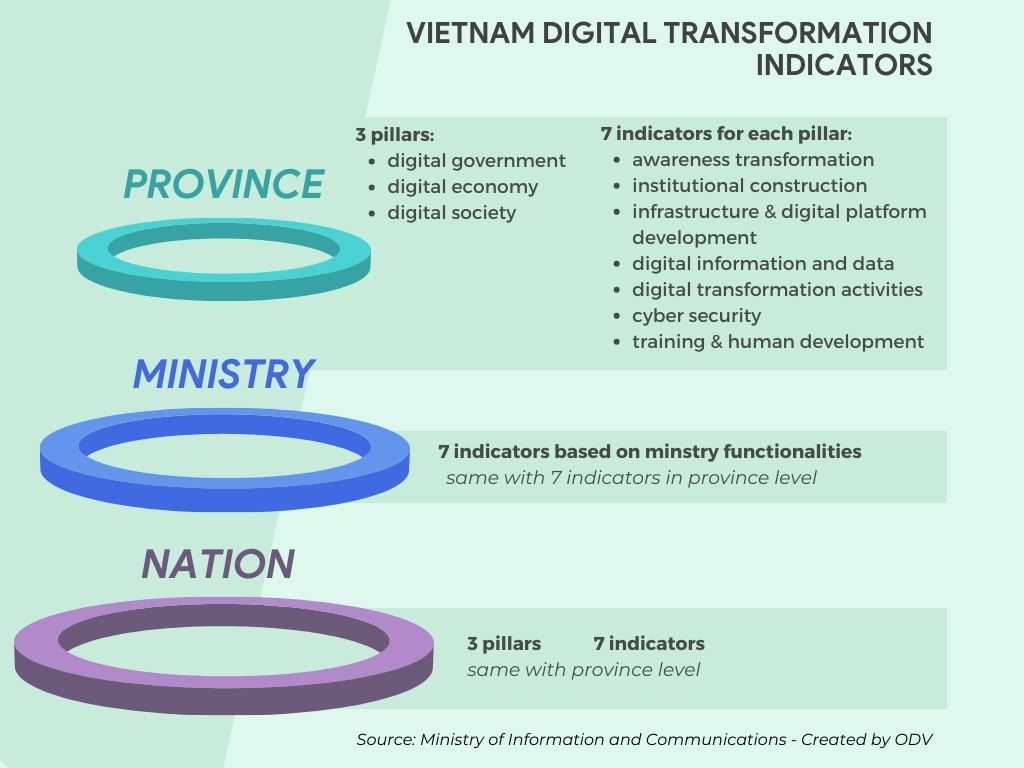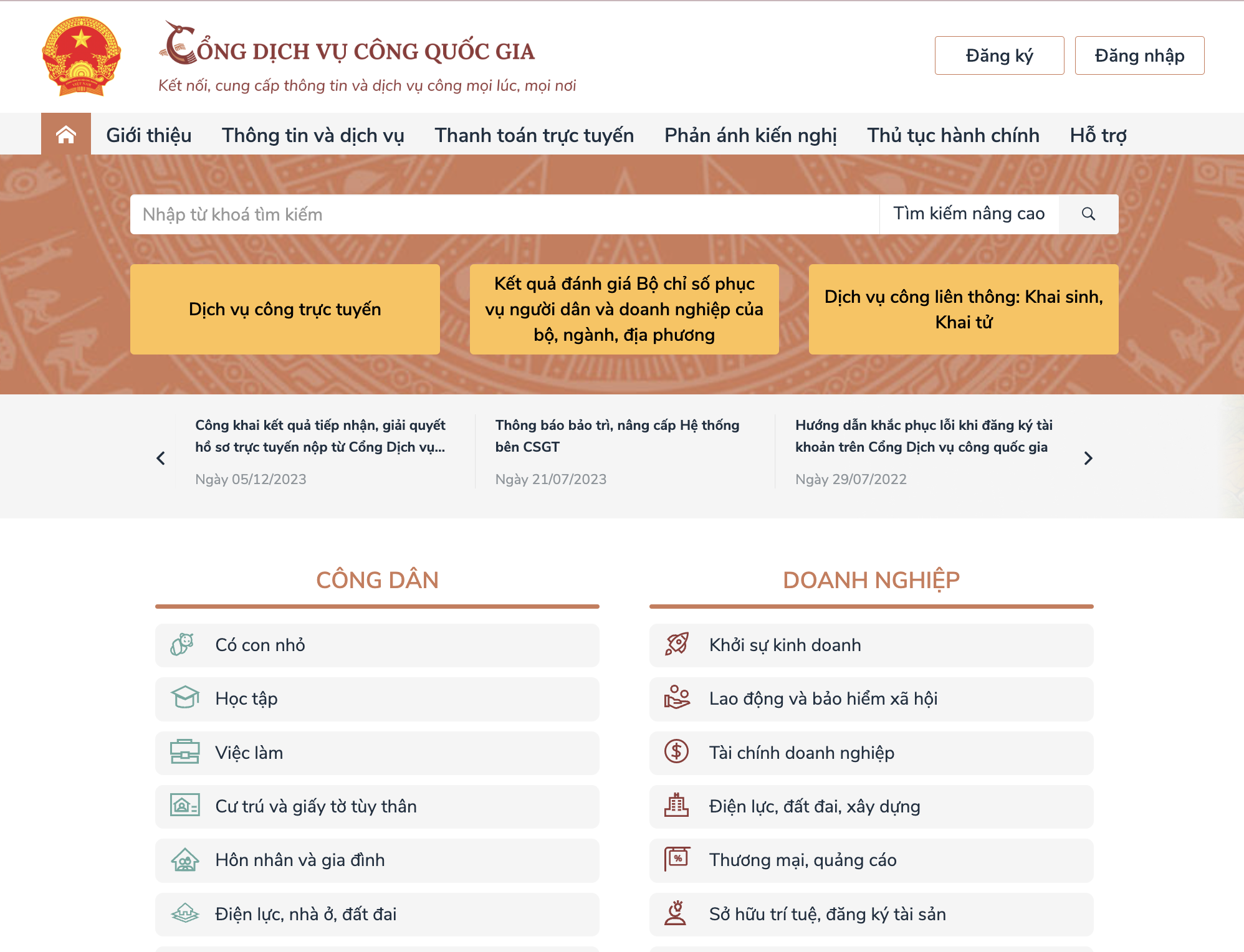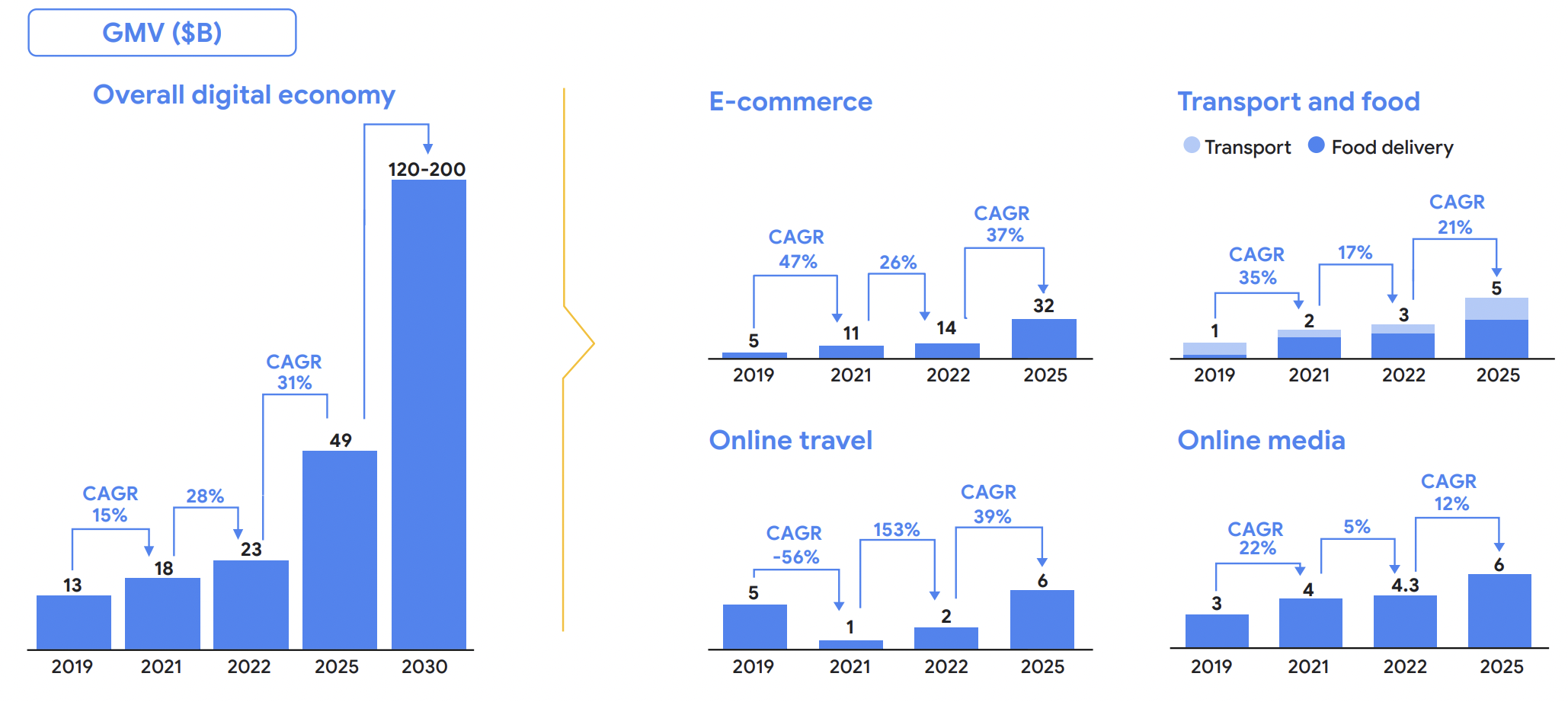Vietnam is pushing toward Industry 4.0 with the government’s Digital Transformation Agenda (DTA) to leverage digital technologies to drive economic growth, improve governance, and promote social development. Digital transformation is being promoted as the key to unlocking the country’s two primary development goals: achieving net zero carbon emission by 2050 and becoming a high-income country by 2045.
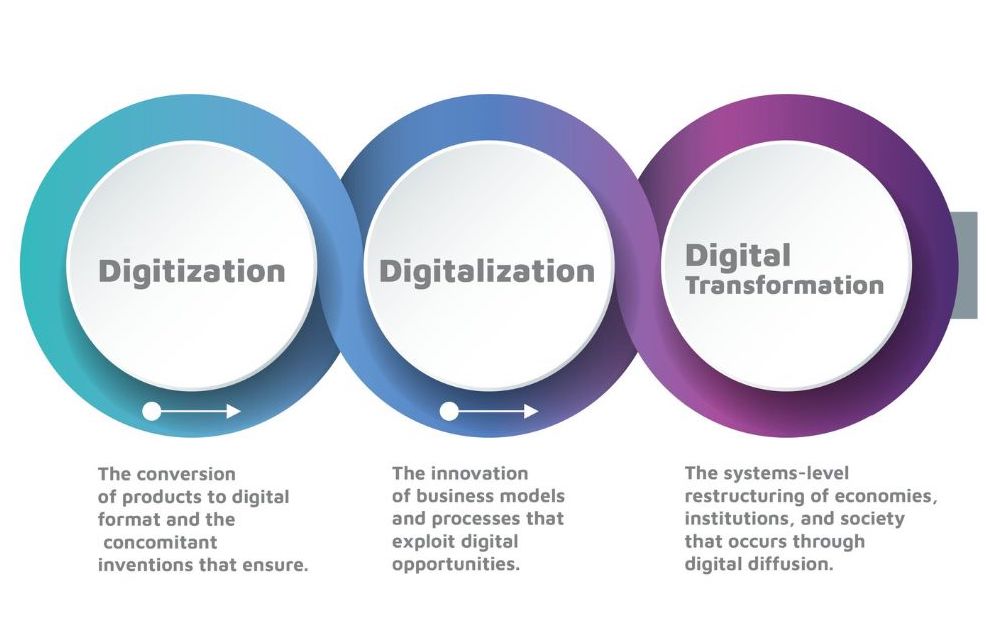
Figure 1: The three amigos: difference between Digitization, Digitalization and Digital Transformation – Graphic by Atonio Grasso – Source: Massachusetts Institute of Technology
The country’s digitalization agenda is based on a National Digital Transformation Program approved in 2020,1 focusing on three strategic pillars: digital government, digital economy, and digital society.
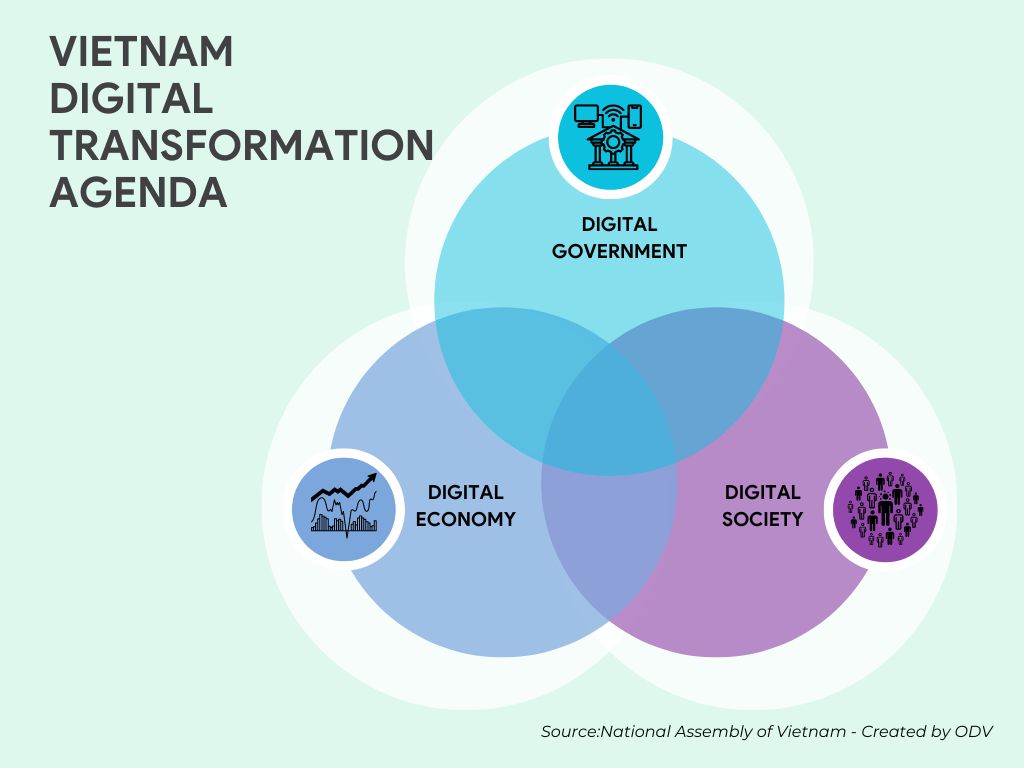
Figure 2: Vietnam Digital Transformation Program 2020. Graphic by ODV – Source: National Assembly of Vietnam
To promote DTA implementation, the Ministry of Information and Communication set in place indicators to monitor and measure annual digital transformation results, called digital transformation indicators (DTI), made at three levels: national level, ministry level, and provincial level. Ranking of DTI among ministries and provinces has been launched to encourage competitiveness among stakeholders. 2
Despite efforts made, there are still potential risks associated with the government’s digital transformation agenda, such as concerns around data privacy and security, as well as the potential for increased inequality if certain groups are left behind in the transition to a digital economy. The government will need to carefully manage these risks to ensure that the benefits of the digital transformation are shared fairly across society.
1. Digital Government
Digital government is a concept that encompasses the use of digital technologies and information and communication technologies (ICT) to enhance the delivery of government services, improve public administration, and increase government transparency and efficiency. It encompasses various aspects, including e-services, e-participation, e-administration, and e-society, all of which contribute to the modernization of public administration and the delivery of public services through digital means.3 Over time, the digital government imperative leverages digital data and technologies for more cohesive service transformation, cross-cutting collaboration and data sharing to produce open, user-driven, and proactive public sector organizations.4
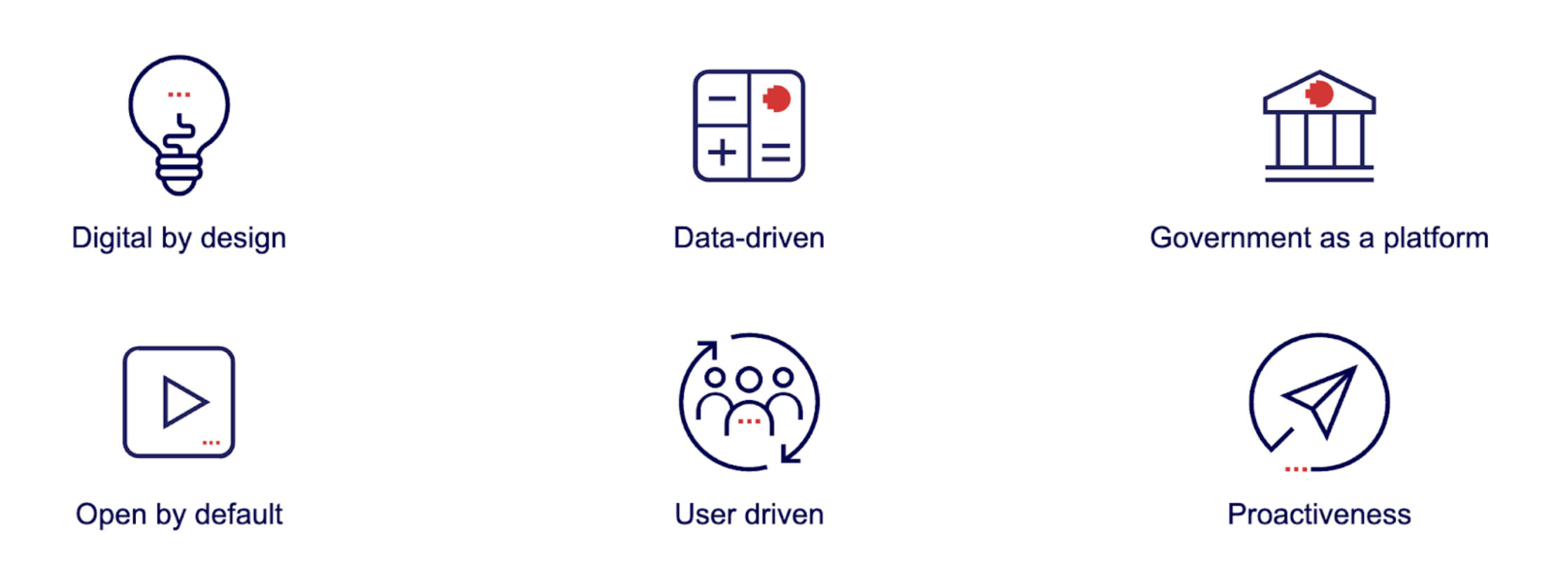
Figure 4. Digital Government Framework. Source: RMIT Vietnam based on OECD Digital Government Policy Framework.
The Vietnam government, in its pursuit of digital government, defines it as an approach that involves the application of digital technologies to restructure and improve the efficiency of public administration, streamline government services, and enhance interactions between government agencies, citizens, and businesses. The government’s vision for digital government in Vietnam is to build a digital society, a digital economy, and digital government services that are accessible, responsive, and tailored to the needs of its citizens. It aims to create a secure and transparent digital environment to facilitate public participation and access to government services online.5
Vietnam has made significant strides in developing its e-government capabilities in recent years. The country has identified a well-defined e-government strategy,6 which aims to create a digital government that is more efficient, transparent, and accessible to citizens. Vietnam aims to have 100% of its administrative procedures available online by 2025.7 As of 2022, Vietnam’s e-government development index (EGDI) ranking was 86 out of 193 countries.8 The country has also set a goal to reach the top 50 in the EGDI ranking by 2025.9
The Vietnamese government has implemented several key initiatives to advance its e-government development, such as the National E-Government Architecture Framework (NEAF),10 which provides a standardized architecture for e-government systems and promotes interoperability between government agencies. Additionally, establishing the National Public Service Portal, launched in December 2019, was one of the key achievements in Vietnam’s e-government development. The portal serves as a centralized platform, providing citizens with a single point of access to more than 2,200 online public services from various ministries and agencies.
Other significant efforts that Vietnam is pursuing include: (i) developing a national database of citizens, businesses, and other entities, (ii) implementing electronic payment systems for taxes and other government fees, (iii) streamlining administrative procedures such as business registration, tax filing and land registration, and (iv) reducing bureaucratic red tape, making it easier for citizens to interact with the government.
However, there are still some shortcomings in Vietnam’s e-government development. One of the main challenges is the uneven distribution of digital infrastructure and access to technology, particularly in rural areas.11 This digital divide has limited the reach and impact of e-government services, and has created barriers to accessing these services for certain groups of citizens, such as ethnic minorities, elderly and those with disabilities or low literacy, and people from low-income or rural areas. While major cities have made significant progress on e-government infrastructure, the poorly performing provinces often happen to be those with low GDP growth rates, low urbanization rates and a larger population of minority ethnic groups.12
Another challenge is the need to improve the quality and reliability of e-government services. While the National Public Service Portal has been widely praised, some issues still need to be addressed with the scope, quality, and consistency of services provided by different ministries and agencies. In many areas, such as justice, e-government services are still lacking or underdeveloped.13 In addition, there have been concerns about data privacy and cybersecurity, which could undermine public trust in e-government and limit the uptake of online services.14 At the provincial level, a recent report assessing the user-friendliness of 63 provincial-level online public service portals in 2023 shows many shortcomings, especially their interfaces have not demonstrated the spirit of user-centeredness (e.g in some portals, public services are not prominently displayed on the homepage or not easy to recognise; search function is not optimized; text is too small; contents are wider than the screen; website interface is not designed for mobile devices). Expressly, the online public service function is not fully integrated – e.g some portals still require both online registration and offline materials submission; features are not optimized for users, and there are inadequacies in connecting data, accounts, and interfaces between central and local systems. In addition, the commitment to protecting personal data and ensuring information security has yet to be given due attention.15
2. Digital Economy
The digital economy refers to an economy where digital technologies, such as the internet and advanced computing, play a significant role in economic activities, driving growth and innovation. It encompasses a wide range of digital components that transform and enable economic processes, including e-commerce, digital payment, digital services, data analytics, Artificial Intelligence, Internet of Things, Blockchain, Sharing economy, Digital government.16
Vietnam’s digital economy has been growing rapidly recently, driven by an increasing tech-savvy population. Vietnam has over 77.93 million internet users and internet penetration stands at 79.1%.17 The rise of e-commerce, online payments, and ride-hailing services has also contributed to the growth of the digital economy. The country’s digital economy revenue was estimated to be worth $166,4 billion in 2022, accounting for 14.26 % of its GDP (the ICT sector contributed half of this), employing more than 1,5 million workers.18 The gross merchandise value19(GMV) of Vietnam’s digital economy in 2022 was 23 billion USD and is on course for 50 billion USD in 2025 – the region’s fastest growing market due to the booming e-commerce sector.20
The government has set a target for the digital economy to account for 30% of GDP by 2030. To achieve this, the country has identified key focus areas, including e-commerce, digital payments, fintech, and other emerging technologies such as artificial intelligence (AI), blockchain, and the Internet of Things (IoT). The government has also launched initiatives to support startups and innovation, such as the National Technology Innovation Program, the National Innovation Center, and the National AI Strategy – which aims to make Vietnam a leading AI hub in Southeast Asia.
Another critical area for Vietnam’s digital economy is digital infrastructure. The government is investing heavily in digital infrastructure, including high-speed internet, by expanding broadband (a target of providing universal broadband access by 202521) and 5G network coverage (a target of nationwide 5G coverage by 203022) and promoting the development of data center infrastructure (e.g. tax incentives and streamlined licensing process) and cloud computing, to support the growth of the digital economy and improve connectivity throughout the country.
As part of its agenda, the government is also taking steps to improve cybersecurity and protect against cyber threats. This includes the establishment of a national cybersecurity center and the development of a legal framework for cybersecurity. The government has launched initiatives to raise awareness of cybersecurity risks and promote best practices, and it has established a cybersecurity law to regulate online activities. 23
However, there are still several prominent challenges that the country faces in developing its digital economy:
- Digital skills gap: A highly skilled workforce is required for the digital economy, and Vietnam still faces a skill gap in digital areas such as data analysis, software development, and cybersecurity. Meanwhile, the education system has not yet adapted to the demands of the digital economy, leaving many students unprepared for the skills needed in tech jobs. Many existing workers lack the skills necessary for the digital economy, making it challenging to build a strong workforce. Only 40 percent of businesses in Vietnam said they have enough capabilities in terms of ICT.24
- Access to capital: Vietnam’s capital market is still developing, and there is limited access to capital for digital startups and small and medium-sized enterprises (SMEs) – which is crucial for them to develop and scale their digital businesses. According to a report by Google, Temasek, and Bain & Company, only 10% of Vietnam’s startup funding goes to digital businesses.25
- Intellectual Property (IP): IP protections are essential for encouraging innovation and investment in the digital economy. Meanwhile, the rapidly evolving nature of the digital economy can make it challenging to develop and enforce regulations that adequately protect IP. Vietnam’s legal framework for IP protection is still underdeveloped, which can discourage foreign investment and limit the growth of domestic startups. In addition, there is still a need for more effective enforcement mechanisms. This includes better coordination between enforcement agencies and the courts, as well as stronger penalties for IP infringement.
- Regulatory challenges: The regulatory environment in Vietnam can be challenging for digital businesses. Regulations can be unclear or restrictive, and compliance can be burdensome and enforcement of law and regulation (e.g cyber security, personal data protection) can be inconsistent. This can create barriers to entry for new digital businesses and limit the growth of the digital economy. In addition, concerns about government surveillance, censorship, and data privacy persist, raising questions about the balance between security and individual rights.
- Digital ecosystem: Vietnam is ranked 63rd out of 113 global economies in a global ranking of digital environment and support systems for entrepreneurs by the Asian Development Bank (ADB).26 The digital ecosystem is fragmented, with a large number of small players operating in different sectors. This can make it difficult for businesses to collaborate and create a cohesive digital ecosystem.
- Digital Society
A digital society is “a society in which everything runs on digital technology where paperless and electronic means are the norm.”27
Low digital skills are one of the most significant challenges facing Vietnam’s digital economy, especially in the broader population. This skills gap is particularly pronounced in rural areas and among women and other marginalized communities, where access to education and training and computers and digital tools is limited. This can limit the adoption of digital technologies and hinder the growth of the digital economy. An abundant, low-cost workforce will no longer be a competitive advantage in attracting foreign investment in this digital era.
To address this, in this third pillar of the digital transformation agenda, the government is focusing on developing digital talent in Vietnam, promoting digital literacy, improving access to digital services and infrastructure, and ensuring that the benefits of digitalization are accessible to all citizens. The goal running through to 2035 in this pillar is to provide fiber optic internet and 5G service nationwide for everyone and for more than 80% of the population to have an electronic payment account.28 This includes efforts to promote digital literacy and skills training and the development of digital content and services. The government has launched several training programs, including the National Digital Transformation Program, which aims to train one million people in digital skills by 2025, including coding, data analytics, and digital marketing. However, these efforts may take time to bear fruit, and more needs to be done to bridge the digital skills gap in Vietnam.
When promoting a digital society, there are also risks and threats emerging that Vietnam is facing, including:
- Digital Identity Risks: The expansion of digital services brings risks related to data privacy and identity theft. Ensuring the security and protection of digital identities is a growing concern.
- Cybercrimes: The rise of the digital economy has led to an increase in cybercrimes, including hacking, financial fraud, and cyber espionage, posing challenges to law enforcement and security agencies.
- Online Scams and Abuses: As more people engage in online activities, the risk of falling victim to scams, misinformation, and online harassment has grown, affecting individuals’ trust in online platforms.
- Citizen Rights: The rapid digitalization in Vietnam raises questions about citizens’ rights, including freedom of expression and privacy.
Overall, Vietnam’s digital transformation agenda represents a significant opportunity for the country to leap forward into the digital age and achieve sustainable economic growth. However, the success of the agenda will depend on the government’s ability to effectively implement its initiatives and address challenges such as digital inequality and cybersecurity risks.
References
- 1. Electronic portal of National Assembly of Vietnam. 2022. Awareness on digital transformation in state agencies, enterprises and people is continuously advanced. Accessed in March 2023.
- 2. Ministry of Information and Communication. Digital transformation indicator page. Accessed in March 2023.
- 3. United Nations. 2018. E-Government Survey 2018: Gearing E-Government to Support Transformation Towards Sustainable and Resilient Societies. Accessed October 2023.
- 4. OECD. 2020. Digital government index 2019. Accessed in October 2023.
- 5. Government Office of Vietnam. 2018. Strategy for the Development of E-Government toward Digital Government in Vietnam. Accessed in October 2023.
- 6. Open Development Vietnam. 2021. First e-government development strategy towards digital government issues. Accessed in March 2023.
- 7. Custom News. 2021. By 2025, 100% of documents and results of administrative procedures will be digitized. Accessed in April 2023
- 8. UN E-Government Knowledgeabase. 2022. Vietnam Country data. Accessed in March 2023.
- 9. Vietnamnet. 2020. Vietnam strives to rank among world’s top 50 countries in e-government development by 2030. Accessed in March 2023.
- 10. Ministry of Information and Communications. 2020. Vietnam E-Government Architecture Framework, version 2.0. Accessed in March 2023.
- 11. Hanoi times. 2021. Vietnam strives to reduce digital technology gap amid Covid-19 pandemic. Accessed March 2023.
- 12. East Asia Forum. 2023. Unveiling The Engines Behind E-Government In Vietnam – Analysis. Accessed in March 2023.
- 13. Vietnam government e-portal. 2022. Building e-Government towards digital government and digital economy in Vietnam. Accessed in March 2023.
- 14. Ministry of Information and Communication. 2022. Focus on removing important “bottlenecks” for the development of e-Government, digital Government. Accessed in March 2023.
- 15. IPS & UNDP VIetnam. 2023. Assessing the user-friendliness of 63 provincial-level online public service portals in 2023. Accessed in October 2023.
- 16. World Bank. 2016. Digital Dividends. World Development Report 2016. Accessed in March 2023.
- 17. Data reported. 2023. Digital 2023: Vietnam report. Accessed in March 2023.
- 18. Ministry of Information and Communication. 2023. Vietnam records best-ever performance in digital economic development. Accessed in March 2023.
- 19. Gross merchandise value (GMV) refers to the value of goods sold via customer-to-customer or e-commerce platforms.It is a measure of the growth of the business or use of the site to resell products owned by others through consignment. Source: Investopedia. 2023. Gross Merchandise Value (GMV): Definition, Formula, Pros and Cons, and Example. Accessed in March 2023
- 20. Google, Temasek and Bain & Company. 2022. e-Conomy SEA 2022. Accessed in March 2023.
- 21. Communist Party of Vietnam – Online newspaper. 2022.Internet is an essential infrastructure, an important component of digital transformation. Accessed in March 2023.
- 22. Ministry of Information and Communication. 2022. 25 years of internet access marked in Vietnam. Accessed in March 2023.
- 23. The Vietnam Cybersecurity Law aims to enhance national security and protect citizens but also raises concerns about freedom of expression and privacy. Balancing these aspects while effectively regulating cyberspace remains a challenge for Vietnam.
- 24. VNExpress. 2022. Digital transformation is key to Vietnam’s ambitions of getting rich and clean. Accessed in March 2023.
- 25. Google, Temasek, and Bain & Company.2019. E-Conomy SEA 2019: Swipe up and to the right – Southeast Asia’s booming digital economy. Accessed in March 2023.
- 26. Asian Development Bank. 2022. Asian Development Outlook 2022 Update: Entrepreneurship in the Digital Age (September 2022). Accessed in March 2023.
- 27. Katzenbach, C. and Bächle, T.C. 2019. Defining concepts of the digital society. Internet Policy Review,[online] 8(4). Accessed in October 2023
- 28. Hanoi Time. 2021.Vietnam to open e-payment for 80% of population by 2025. Accessed in April 2023. Available at:
